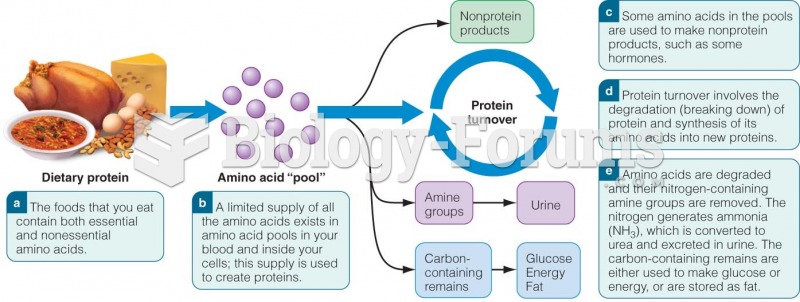|
|
|
Historic treatments for rheumatoid arthritis have included gold salts, acupuncture, a diet consisting of apples or rhubarb, nutmeg, nettles, bee venom, bracelets made of copper, prayer, rest, tooth extractions, fasting, honey, vitamins, insulin, snow collected on Christmas, magnets, and electric convulsion therapy.
It is difficult to obtain enough calcium without consuming milk or other dairy foods.
The heart is located in the center of the chest, with part of it tipped slightly so that it taps against the left side of the chest.
Human stomach acid is strong enough to dissolve small pieces of metal such as razor blades or staples.
Human neurons are so small that they require a microscope in order to be seen. However, some neurons can be up to 3 feet long, such as those that extend from the spinal cord to the toes.







